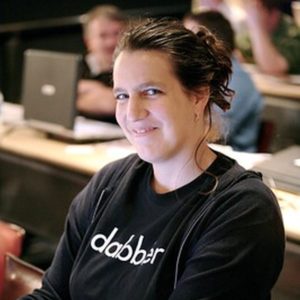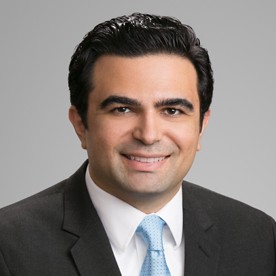Identity Book
The internet was born without a native payment and identity system. The rise of the commercial internet complicated forever trust in payments and identity creating a myriad of fraud, crime and surveillance capitalism opportunities hindering the internet to fulfill its full potential.
Self-Sovereign identity (SSI) is the technology that incorporates the cryptographic advances of cryptocurrency and blockchain technology to move to the next level to create the trust economy to benefit people, companies and governments. However, the full power of Self-Sovereign identity, can be used as all technologies in value creating driven efforts or selfish ways depending on how it will be implemented. It will be for the reader to asses while reading and learning with this book what this means for the future of the internet and the world.
What’s Inside
- The architecture of SSI software and services
- The technical, legal, and governance concepts behind SSI
- How SSI affects global business industry-by-industry
- Emerging standards for SSI
- The larger impacts of SSI on society and the future of the Internet
Written for technology and business readers. No prior SSI, cryptography, or blockchain experience required.
Proceeds from this book will support three non-profit organizations shaping the development of SSI:
Coordinating authors

Drummond Reed
Drummond has spent over two decades in Internet identity, security, privacy, and trust frameworks. He joined Evernym as Chief Trust Officer after Evernym acquired Respect Network, where he was CEO, co-founder, and co-author of the Respect Trust Framework, which was honored with the Privacy Award at the 2011 European Identity Conference. Drummond is a Trustee and Secretary of the Sovrin Foundation, where he serves as chair of the Sovrin Governance Framework Working Group. He is co-editor of the DID (Decentralized Identifiers) specification in the W3C Credentials Community Group. He has served as co-chair of the OASIS XDI Technical Committee since 2004, the semantic data interchange protocol that implements Privacy by Design. Prior to starting Respect Network, Drummond was Executive Director of two industry foundations: the Information Card Foundation and the Open Identity Exchange. In 2002, he received the Digital Identity Pioneer Award from Digital ID World, and in 2013, he was cited as an OASIS Distinguished Contributor.

Alex Preukschat
Alex is passionate about the continuous social transformation facilitated by technology and the new P2P economy. Alex was the Global Head of Strategic Blockchain Projects with Evernym and has worked and started a number of Blockchain and Technology ventures in his career. He is the coauthor of the first Bitcoin graphic novel of the world (BitcoinComic.org), the Spanish Blockchain bestseller Blockchain: the industrial revolution of the Internet (LibroBlockchain.com), coordinating node of Blockchain communities BlockchainEspana.com focused on Spain, AlianzaBlockchain.org of iberoamerican communities from Argentina, Chile, Colombia, Panama, Mexico and Spain, and SSIMeetup.org focused on SSI knowledge sharing. He has also created a cryptocurrency mobile game with MoneyFunGames.com. Alex studied at Universidad Pontificia Comillas-ICADE E-4 in Madrid/Spain and ESB Reutlingen/Germany.
Appendices co-authors

Rieks Joosten
(chapter 2), is currently a senior scientist with TNO, where he is the scientific lead of the Self-Sovereign Identity group and the Networked Risk Management group. Since 2014, he has been a contributing expert member of the ISO/IEC JTC1/SC27 WG1 group that manages the 27000 series of IT security standards. He was responsible for architecting the world’s fastest asymmetric crypto chip in the mid-1990s and was one of four individuals to create the operating system, system software, and software tools for the first handheld computers of Matsushita.

Dr. M. Oskar van Deventer
(chapter 2) is a senior scientist with TNO on blockchain networking and SSI. His focus is on public-private R&D partnerships, European collaborative R&D projects, and international standards. He is an active contributor to international standards bodies. Oskar is an assigned member of the Economic Advisory Council of Sovrin, the world-leading blockchain for SSI. He is also leading several projects on blockchain and self-sovereign identity in the Techruption program.

Daniel Hardman
(chapters 3 and 5, Livebook) has been building software for several decades. He’s led engineering teams at small startups, an incubator, and a continent-spanning business unit at a Fortune 500 company. Daniel has been involved in identity and privacy since his cybersecurity days, and in SSI and blockchain for the past several years, where he was Chief Architect at Evernym and then Principle Ecosystem Engineer at SICPA. He participated in the initial launch of the Sovrin network and serves as secretary of the Sovrin Technical Governance Board.

Sajida Zouarhi
(chapter 6), began her career as a research engineer at Orange Labs and the Computer Science Lab of Grenoble. In 2015, she co-founded the Kidner Project, a privacy-preserving distributed matching system for kidney transplants. She worked as a blockchain architect with leaders in the field such as ConsenSys, where she co-founded HellHound in 2018, a decentralized blind computation platform. In 2019 she became chief technology strategist of Nomadic Labs, a Tezos core R&D center. In 2020, she created Philea, a DAO-based platform using DeFi for sustainable social impact.

Brent Zundel
(chapter 6) is a crypto engineer. He was an engineer for industrial control systems and wrote software for testing product quality before beginning work for Evernym, where he helps design privacy-preserving protocols for credential exchange. Brent also works closely with the Sovrin Foundation, a non-profit dedicated to providing a global public utility for identity, and with the W3C Verifiable Claims Working Group, who are designing an interoperable data model for verifiable credentials. Brent is also co-chair of the W3C Decentralized Identifiers (DIDs) Working Group.

Dr. Daniel Burnett
(chapter 7), has been at the forefront of key web and internet standards for two decades. He has been the chair or co-chair of multiple working groups in W3C and IETF and past chairman of the board of the VoiceXML Forum and is currently a director of the IEEE-ISTO. His career has taken him from Southwestern Bell and Nuance through Voxeo, Tropo, and now ConsenSys, in the PegaSys standards group. He is a co-editor of the Verifiable Credentials Data Model specification and a co-chair of the Verifiable Claims Working Group at W3C.

David W Chadwick
(chapter 7), is professor of information systems security at the University of Kent, UK. He has been working on distributed authorization systems for over 20 years and was the architect of the PERMIS authorization infrastructure, the first implementation of X.509 attribute certificates. He has contributed to international standards for over 30 years, has co-authored two internet RFCs, was the editor of X.518, wrote substantial portions of X.509 privilege management, and is currently an invited expert to the W3C Verifiable Credentials Working Group.

Markus Sabadello
(chapters 8 and 14), was an early participant of decentralization movements such as the Federated Social Web, Respect Network, and the FreedomBox. He has worked as an analyst and consultant at the Harvard Berkman Center for Internet & Society, the MIT Media Lab's Human Dynamics Group, the World Economic Forum, and the Personal Data Ecosystem Consortium. In 2015 he founded Danube Tech, a consulting and development company that contributes to the Sovrin Foundation, the Decentralized Identity Foundation (DIF), and various SSI projects around the world. He is also a co-editor of the W3C DID Core 1.0 Specification.

Darrell O’Donnell
(chapter 9), is a technology entrepreneur, board member, and advisor for multiple investors, corporations, governments, and military clients. He is currently focused on decentralized identity and how it impacts finance, health care, and other industries. He actively volunteers in multiple technology and business communities and mentors young technologists.

Samuel M. Smith Ph.D.
(chapter 10) works at the intersection of AI, blockchain, and decentralized identity systems as both an entrepreneur and strategic consultant. He has written and continues to write seminal white papers on decentralized identity, reputation AI, distributed computing, and machine learning and is active in shaping the underlying standards and driving their adoption. He was principal investigator on numerous federally funded research projects. He is the creator of KERI, and his early white papers provided inspiration for Sovrin and SSI.

Richard Esplin
(chapter 12) is a product leader and technology evangelist. His diverse experience ranges from engineering to sales and marketing in both start-ups and global companies. He is focused on closing the digital divide by creating open source solutions for SSI at Evernym.

Daniel Paramo
(chapter 13), is the co-founder of swys and the founder of Echo Intelligent Solutions. In addition, he is an advisor for Xertify, a company that uses verifiable credentials, blockchain, and analytics to facilitate communication, issuance, and verification between students, workers, and institutions. He founded several startups associated with blockchain and the sharing economy and is a former account executive at Learning Machine and former business development and engineer at Bell Flight.

Kaliya “Identity Woman” Young
(chapter 16 and Livebook), is the Ecosystems Director at the Covid Credentials Initiative. She co-founded the Internet Identity Workshop in 2005 with Doc Searls and Phil Windley. She is the author of The Domains of Identity: A Framework for Understanding Identity Systems in Contemporary Society and A Comprehensive Guide to Self-Sovereign Identity. In 2012 she was named a Young Global Leader by the World Economic forum. In 2017 she received a Master of Science in Identity Management and Security from UT Austin. She is a 2019 New America India-US Public Interest Technology Fellow. In January 2020 she was featured in Wired UK.

Infominer
(chapter 16), is an aspiring cypherpunk and a student of web-work, blockchain, and cryptosystems, with a focus on open source information exchange, decentralized identity, content-creation, and publishing. He is cataloging histories and information related to blockchain and cryptocurrency to make these complex topics more easily navigable. At the time of writing, decentralized identity and histories related to bitcoin and are the most thoroughly covered subjects in that effort.

John Phillips
(chapter 18), has over 20 years of international experience in sectors ranging from the space industry to finance and higher education. Powered by the 460degrees Expert Management Agency, he leads emerging technology and the work 460degrees performs with the education sector. John is currently a co-chair of the Sovrin Working Group on Guardianship and a member of the Working Group on Credentialing for the National Blockchain Roadmap Steering Committee for the Australian Government's Department of Industry, Science, Energy, and Resources.

Oscar Lage Serrano
(chapter 19), is global head of cybersecurity at Tecnalia, a member of the advisory board of several companies, and leader of the first industrial blockchain laboratory in Europe. He is a member of the Enterprise Ethereum Alliance and Hyperledger, coordinator of the industrial node of the multisectorial Spanish Blockchain network (Alastria), a member of Blockchain Expert Policy Advisory Board at OECD, vice president of the blockchain committee of AMETIC, and a member of the main international forums of cybersecurity at the European Cyber Security Organization and the Center for Industrial Cybersecurity, among others.

Santiago de Diego
(chapter 19) is a mathematician and IT engineer from the University of Granada (UGR) with a background in pentesting and information security. He has participated in several national and international congresses related to programming and information security. He currently works as a cybersecurity researcher at Tecnalia Research & Innovation, where he does research about cybersecurity for critical infrastructures, distributed ledger technologies, and cryptography.

Michael Shea
(chapter 19) has over 30 years of experience in the technology sector. He is currently the managing director of The Dingle Group, leads the Self-Sovereign Identity and IoT Task Force for the Sovrin Foundation, and is co-chair of the Trust and Identity Subgroup of the IEEE P2933 Clinical IoT Working Group. He has founded multiple businesses and is an Advisor to FootprintProject.org and eWINGZ.aero.

Chris Raczkowski
(chapter 20) has 25+ years of international professional experience with both large multinational corporations and start-up companies, where he has helped to lead the development and commercialization of numerous technologies. His work responsibilities have included R&D, engineering, and executive business leadership roles. During the last three years he has helped to found and lead several companies, all of which are focused on SSI use cases, and he is the chairman of the Sovrin Foundation board of trustees.

Liwen Zhang
(chapter 20) has 10+ years of HR and operations management experience with international companies in Beijing, where she was a strategic business partner and project manager with a variety of global firms. Liwen is also an animal welfare advocate. As part of her advocacy, she co-founded the REAL animal welfare organization in China and. She is also a co-founder and leader of the Canadian company ID Lynx Ltd. and the DignifID Animals Foundation, both of which are developing SSI use cases to support animal welfare.

Dr. Andrew Rowan
(chapter 20) has more than 40 years of experience in animal welfare science and animal and environmental advocacy, including advocating the value of digital identities for animals to promote their welfare. He has served on many government and corporate consultative committees and numerous boards of national and international NGOs and most recently served as the CEO of Humane Society International along with the Board Chair of the Wildlife Land Trust of the HSUS.

Shannon Appelcline
(chapter 21), is a technical writer with considerable experience in the blockchain ecosystem. He’s worked for ECC cryptography innovator Certicom, Bitcoin leader Blockstream, and blockchain property-rights pioneer Bitmark. He’s also the editor in chief for Rebooting the Web of Trust, where he’s shepherded to publication over 40 papers on next-generation decentralized technologies.

Daniel Fritz
(chapter 22) is the supply chain domain architect at Novartis, responsible for the architecture vision and selection of emerging technologies that will transform the business. He has 25 years of leadership and supply chain IT experience in the US military, IT consulting, pharmaceutical manufacturing, and global supply chain organizations. He also is APICS CPIM and CSCP certified and has the SCOR-P endorsement.

Marco Cuomo
(chapter 22), is a senior digital solutions architect responsible for exploring, engineering, and implementing new technologies such as blockchain, IoT, and API management. He has been with Novartis since 2005. Since 2016, his focus has been on blockchain and exploring various use cases in pharma. He has held various positions in software development, engineering, operations, service management, and solution design.

Tim Bouma
(chapter 23), is a senior analyst for digital identity within the Cyber Security Division of the Office of Chief Information Officer, Government of Canada. He is the principal author of the Government of Canada Treasury Board policy instruments for identity management and the lead analyst for the development of the Pan-Canadian Trust Framework. He has authored or contributed to various policy and strategy papers, including the Pan-Canadian Assurance Model, the Pan-Canadian Approach to Trusting Identities, and Federating Identity Management in the Government of Canada.
Dave Roberts
(chapter 23) is a senior analyst for digital identity in the Office of the Chief Information Officer, Government of Canada. He has authored or contributed to various Government of Canada Treasury Board standards and specifications, including the Pan-Canadian Identity Management Validation Standard and the Pan-Canadian Identity Management Information Exchange Specification. Currently, Dave is the senior analyst for the development of the Public Sector Profile of the Pan-Canadian Trust Framework. He has over 35 years of experience working as an IT professional for the Government of Canada.

Nacho Alamillo
(chapter 24), is a practicing European lawyer and managing partner at Astrea and CISO at Logalty. He also collaborates with the iDerTec Research group (University of Murcia) and serves as chief trust officer at Alastria Blockchain Ecosystem. He is involved in standardization activities including ETSI TC ESI, CEN-CLC/JTC19,ISO TC 307 and ISO/IEC-JTC1/SC27.

Doc Searls
(Foreword and Landmark Essays) is one of four co-authors of The Cluetrain Manifesto, the book that single-handedly redefined how marketing would work on the Internet. He has been one of the world’s leading advocates for the “voice of the customer”. His 2012 book The Intention Economy, published by Harvard Business Review, described the transformation happening in business as customers finally take charge. It was his Harvard Berkman mailing list on “vendor relationship management” (VRM) where the term “self-sovereign identity” was first coined. Doc is also one of the founders of the Internet Identity Workshop where the core tenets of SSI have been forged over the last 15 years.

Phil Windley
(Appendix B) is a Principal Engineer in the Office of Information Technology at Brigham Young University (BYU). He was the Founding Chair of the Sovrin Foundation serving from 2016 to 2020. He is also the co-founder and organizer of the Internet Identity Workshop, serves as an Adjunct Professor of Computer Science at BYU, writes the popular Technometria blog, and is the author of the books The Live Web (2011) and Digital Identity published (2005). Phil has been a computer science professor at BYU, founder and CTO of several Internet technology companies, and served as CIO for the State of Utah. He holds a Ph.D. in Computer Science from University of California, Davis.

Jason Law
(Appendix B) is co-founder and CTO at FixFake. A technologist, innovator, and entrepreneur, Jason’s focus is on tools and tech that help us know what we see online is authentic. He was co-founder and CTO at Evernym and the lead architect of the open source distributed ledger technology that was contributed to the Sovrin Foundation to become the Sovrin ledger and then to the Linux Foundation to become the Hyperledger Indy project.

Timothy Ruff
(Appendix B) is a General Partner of Digital Trust Ventures and currently CEO of Credential Master. He was the co-founder of Evernym and co-inventor of the Sovrin ledger. Timothy is the host of Breaking Silos, the first podcast dedicated to the business models made possible by SSI and Verifiable Credentials.

Christopher Allen
(Appendix C), is an entrepreneur and technologist who specializes in collaboration, security, and trust. He worked with Netscape to develop SSL and co-authored the IETF TLS internet draft that is at the heart of secure commerce on the web. More recently, he was principal architect at Blockstream efforts. Christopher is co-chair of the W3C Credentials CG working on standards for decentralized identity and founder of Blockchain Commons. He also founded and facilitates the semi-annual Rebooting the Web of Trust design workshops.

Fabian Vogelsteller
(Appendix D) has built many open source projects, including an open source content management system (feindura.org). He joined the Ethereum Foundation in July 2015 and has built some of its core applications, such as the Ethereum Wallet and the Mist browser. He worked on the RPC API and developer tools like web3.js—Ethereum’s most-used JavaScript library. He also proposed the ERC 20 token standard and ERC 725 Proxy Account standard. He is currently building a blockchain called LUKSO for the fashion and design space.

Oliver Terbu
(Appendix D) has been an identity architect with ConsenSys/uPort since 2018. He is also an active member of standardization bodies and working groups such as the W3C Credentials Community Group, the W3C Verifiable Claims Working Group, and the Decentralized Identity Foundation working groups. He participates in the Ethereum Enterprise Alliance; the OpenID Foundation; ISO/IEC C307 WG2 Blockchain Privacy, Security, and Identity; and the CEN/CENELEC Focus Group on Blockchain and Distributed Ledger Technologies. Until 2018, he was a member of ISO/IEC JTC1/SC17 WG10 and coordinated the activities of online mobile driver license profiles.
Livebook co-authors

Amit Sharma
(Livebook) has engaged in a myriad of roles that intersect financial markets, risk management, regulatory compliance, and development. He is the Founder and CEO of FinClusive, a hybrid fin-/reg-tech company dedicated to financial inclusion by providing a full-stack financial crimes compliance (FCC) platform with digital access to accounts and multi-form payments. Prior to FinClusive, Amit worked in both the public and private sector, including with Empowerment Capital, Mitsubishi UFJ Securities, and at the US Treasury Department, first at the inception of the Office of Terrorism and Financial Intelligence (TFI), where he drove strategies to combat transnational illicit finance threats, and later as COS to the Deputy Secretary and Advisor to Treasury’s senior team under Secretary Henry Paulson.

Dr. André Kudra
(Livebook), is passionate about information security and SSI. He has a diploma plus a doctorate from European Business School (EBS) and a computer science bachelor’s degree from James Madison University (USA). Since 2013 he is CIO of esatus AG, a German tech company with a strong SSI vision. esatus is a Sovrin Founding Steward, a Trust over IP founding and steering member and contributes to the blockchain identity standardization efforts of ISO/TC 307. André is a Sovrin Trustee and a board member of TeleTrusT IT Security Association Germany, where he chairs the “Blockchain'' and “Secure Platform” working groups.

Stephan Wolf
(Livebook) is the CEO of the Global Legal Entity Identifier Foundation (GLEIF). Since January 2017, Mr. Wolf is Co-convener of the International Organization for Standardization Technical Committee 68 FinTech Technical Advisory Group (ISO TC 68 FinTech TAG). In January 2017, Mr. Wolf was named one of the Top 100 Leaders in Identity by One World Identity. He has extensive experience in establishing data operations and global implementation strategy. Mr. Wolf co-founded IS Innovative Software GmbH in 1989 and served first as its managing director. He was later named spokesman of the executive board of its successor IS.Teledata AG. This company ultimately became part of Interactive Data Corporation where Mr. Wolf held the role of CTO.

Christoph Schneider
(Livebook) is Head of IT Development and Operations at the Global Legal Entity Identifier Foundation (GLEIF). In June 2017, Mr. Schneider joined the International Organization for Standardization (ISO) as co-leader of the Technical Committee 68 FinTech Technical Advisory Group (ISO TC 68 FinTech TAG) work stream dealing with digital identity. He has extensive experience in developing and implementing solutions in financial technology. Mr. Schneider holds a Master of Science degree in Business Information Systems from Technische Universität Darmstadt.

Karla McKenna
(Livebook) is Head of Standards & Managing Director GLEIF Americas. An international standards specialist in the area of financial services, Karla is responsible for facilitating the development and implementation of standards at the Global Legal Entity Identifier Foundation (GLEIF). She chaired the International Organization for Standardization Technical Committee 68 (ISO/TC 68), Financial services, from 2006 to 2018 and continues work with the committee in the areas of standards interoperability, regulatory use, and best practices for financial services standards. Karla currently serves on the Board of XBRL International and is a member of the inaugural Board of the Eurofiling Foundation.

Paul Knowles
(LiveBook) is Head of the Advisory Council at The Human Colossus Foundation, a non-profit technological organization based in Geneva, Switzerland. He is a decentralized semantics expert whose 25-year career in pharmaceutical biometrics spans work with such companies as Roche, Novartis, GlaxoSmithKline, Amgen, and Pfizer. Paul is the Inputs and Semantics working group lead at the Trust over IP Foundation which is standardizing decentralized technologies including Overlays Capture Architecture (OCA) for harmonizing data semantics across data models and data representation formats. Paul is also an active contributor at IEEE, MyData Global, and the Kantara Initiative.

Dr. Manreet Nijjar
(LiveBook) is a physician in infectious diseases and general internal medicine. He has worked for over a decade in frontline services for the National Health Service (NHS) in the UK. For the last four years, he has focused on the role of decentralized digital identity in healthcare ecosystems. He is a member of the project team evaluating the uses of distributed ledger technology in the NHS. He sits on an all-party Parliamentary subcommittee advisory group for blockchain and healthcare and co-chairs the IEEE pre-standards group for decentralized digital identity in healthcare.

David Harney
(Livebook) was appointed group CEO of Irish Life in July 2016 and has worked at Irish Life for over 30 years. He is a fellow of the Society of Actuaries in Ireland. David’s focus is on transforming Ireland’s health and financial well-being in the digital age.

Jamie Smith
(Livebook) is Senior Director, Business Development at Evernym. With over 15 years' experience of designing and delivering digital technologies and disruptive business models around the world, he specialises in helping organisations embrace new self sovereign identity approaches and creating new digital ecosystems to drive growth.

Nathan Cooper
(LiveBook) is senior advisor for innovation in disaster preparedness at the International Federation of Red Cross and Red Crescent Societies. During the last 20 years he has worked in varied international contexts preparing for and responding to humanitarian emergencies. Most recently, he pulled together a group of organizations to test blockchain as part of a cash-transfer system used to allocate aid to drought affected families in Kenya.

Amos Doornbos
(LiveBook) is currently the disaster management strategy and systems director for World Vision International and a member of the Identity for All Council of the Sovrin Foundation. He has lead the turnaround of last-mile digital registration system for humanitarian organizations. Amos has over 15 years of experience working and around humanitarian aid in over 25 countries.

Jack A. Najarian
(Livebook), is a corporate and real estate attorney who lives and practices in the Houston, Texas area. He primarily represents middle market companies and entrepreneurs, and focuses on advising and representing clients in business transactions and structuring their businesses. In his free time, he enjoys volunteering and helping organizations like the Internet Bar Organization, of which he currently is a member, tackle large and important global legal issues such as digital identity.

Jeff Aresty
(Livebook), is an international business and e-commerce lawyer with over 40 years of experience in international business law, cyberlaw and technology transfer. He is a leading expert in online dispute resolution committed to promoting human rights through the use of technology and online justice systems. He founded Internetbar.org, Inc. (IBO) in April of 2005 to create sustainable income opportunities for individuals from developing areas and conflict zones. By developing a harmonized legal framework for online interactions, IBO has been able to work with local partners around the world, empowering their communities using technology, communication, and innovative social and economic justice initiatives.

Aamir S. Abdullah
(Livebook), is currently a law librarian in the state of Colorado. He practiced law for five years in the state of Texas where he handled both state and federal cases. He is passionate about access to justice and the intersection of law and technology. He has been involved with Internetbar.org, Houston Legal Hackers, and the Sovrin Guardianship Task Force.

Jasmin Huber
(Livebook) is a master student at the Institute of Technology in Carlow, Ireland, majoring in supply chain management. During her bachelor studies in business administration at the University of Bayreuth in Germany, she specialized in the areas of operations management and information systems management. While focusing on business information systems, she became interested in the emerging topic of self-sovereign identity, subsequently writing her bachelor's thesis on it. Currently, she aims to combine the research fields of self-sovereign identity and supply chain management in her master's thesis.

Johannes Sedlmeir
(Livebook) is a researcher at the Project Group Business & Information Systems Engineering of the Fraunhofer FIT and pursues his PhD in Information Systems at the FIM Research Center, University of Bayreuth. His focus is on technical challenges and business implications of applying distributed ledger technologies (blockchains) in the public and private sector, including scalability and performance challenges, energy consumption myths, and privacy and confidentiality issues. He received his M.Sc. in Theoretical and Mathematical Physics.

Philip Sheldrake
(Livebook) is a researcher with the AKASHA Foundation. He is a Chartered Engineer with experience and expertise spanning digital innovation, process engineering, systems thinking, organisational design, marketing and communications.

Scott Perry, CPA, CISA
(Livebook) is the principal of Scott S. Perry CPA, PLLC—a licensed nationally operated U.S. CPA firm specializing in cybersecurity consulting and audit (and one of only a handful of CPA firms licensed to issue WebTrust opinion reports over Certification Authorities who issue digital certificates to websites). He has been an advisor and auditor in the US Federal PKI digital identity network since 2005. He is a contributor to the Sovrin Governance Framework and primary author of the Sovrin Trust Assurance Framework. He is a co-chair of the Trust Over IP Foundation Governance Stack Working Group.

Sungjun (Calvin) Park
(LiveBook), Sungjun focuses on developing new business to provide blockchain-bases services at Coinplug, Inc. He spent most of his young life in Toronto, where he studied Computer Science at the University of Waterloo. He later decided to move to Korea, his home country, and changed his field of studies to International Business. His career began as a Data Scientist at Delivery Heros Korea, where he analyzed how different environmental factors and incentive models influence human behaviour when purchasing goods and services. Sungjun currently leads multiple DID projects in South America and Southeast Asia, as well as other projects utilizing blockchain technology in South Korea.

Jake Hostetler
(Livebook) is an internationally-minded writer focused on bringing awareness to the possibilities of blockchain, especially in the space of identity. As a member of team Metadium, he focuses on global partnerships with the goal of making “true” self-sovereign identity a reality. Jake grew up and attended Dickinson College in the United States. After a few years in Philadelphia gaining experience in the pharmaceutical industry, he relocated to Aachen, Germany where he began writing and working in the software space. He relocated to Seoul, South Korea to support the team at Metadium.







